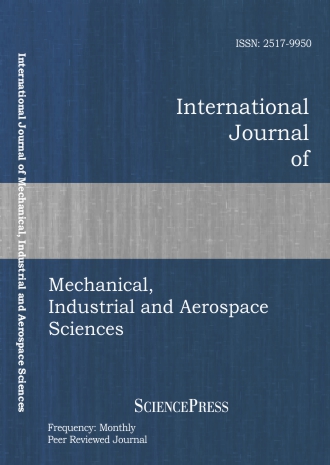
Scholarly
Volume:2, Issue: 7, 2008 Page No: 882 - 887
International Journal of Mechanical, Industrial and Aerospace Sciences
ISSN: 2517-9950
1251 Downloads
Transcritical CO2 Heat Pump Simulation Model and Validation for Simultaneous Cooling and Heating
In the present study, a steady-state simulation model has been developed to evaluate the system performance of a transcritical carbon dioxide heat pump system for simultaneous water cooling and heating. Both the evaporator (including both two-phase and superheated zone) and gas cooler models consider the highly variable heat transfer characteristics of CO2 and pressure drop. The numerical simulation model of transcritical CO2 heat pump has been validated by test data obtained from experiments on the heat pump prototype. Comparison between the test results and the model prediction for system COP variation with compressor discharge pressure shows a modest agreement with a maximum deviation of 15% and the trends are fairly similar. Comparison for other operating parameters also shows fairly similar deviation between the test results and the model prediction. Finally, the simulation results are presented to study the effects of operating parameters such as, temperature of heat exchanger fluid at the inlet, discharge pressure, compressor speed on system performance of CO2 heat pump, suitable in a dairy plant where simultaneous cooling at 4oC and heating at 73oC are required. Results show that good heat transfer properties of CO2 for both two-phase and supercritical region and efficient compression process contribute a lot for high system COPs.
Authors:
References:
[1] P. Neksa, "CO2 heat pump systems," Int. Journal of Refrigeration, vol.